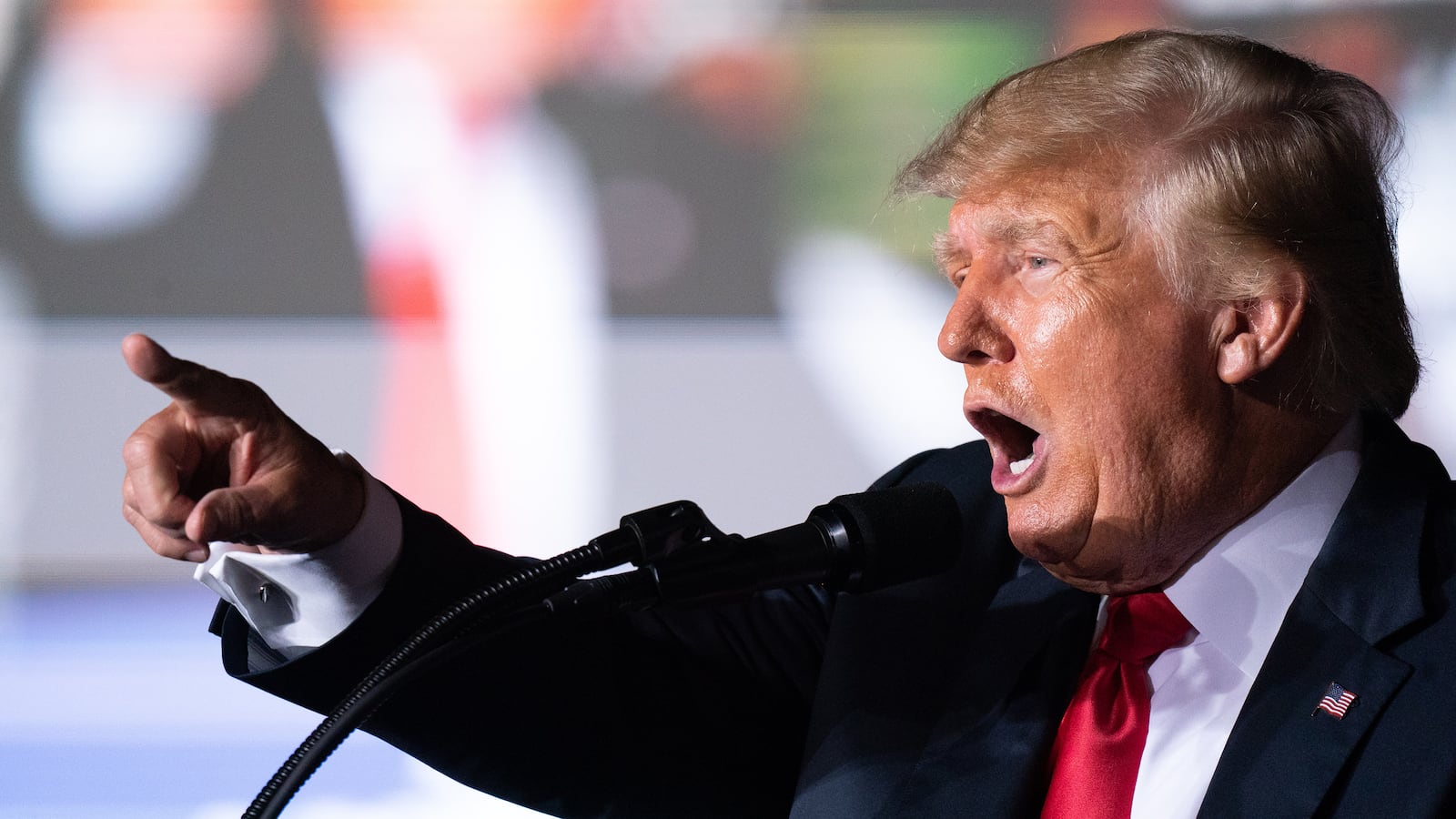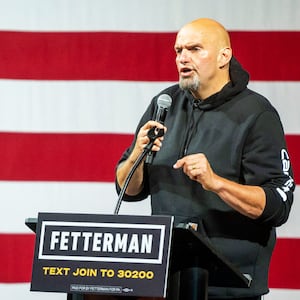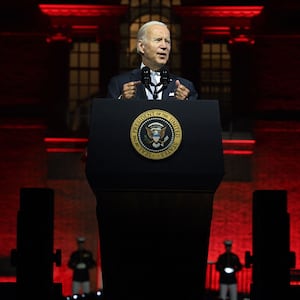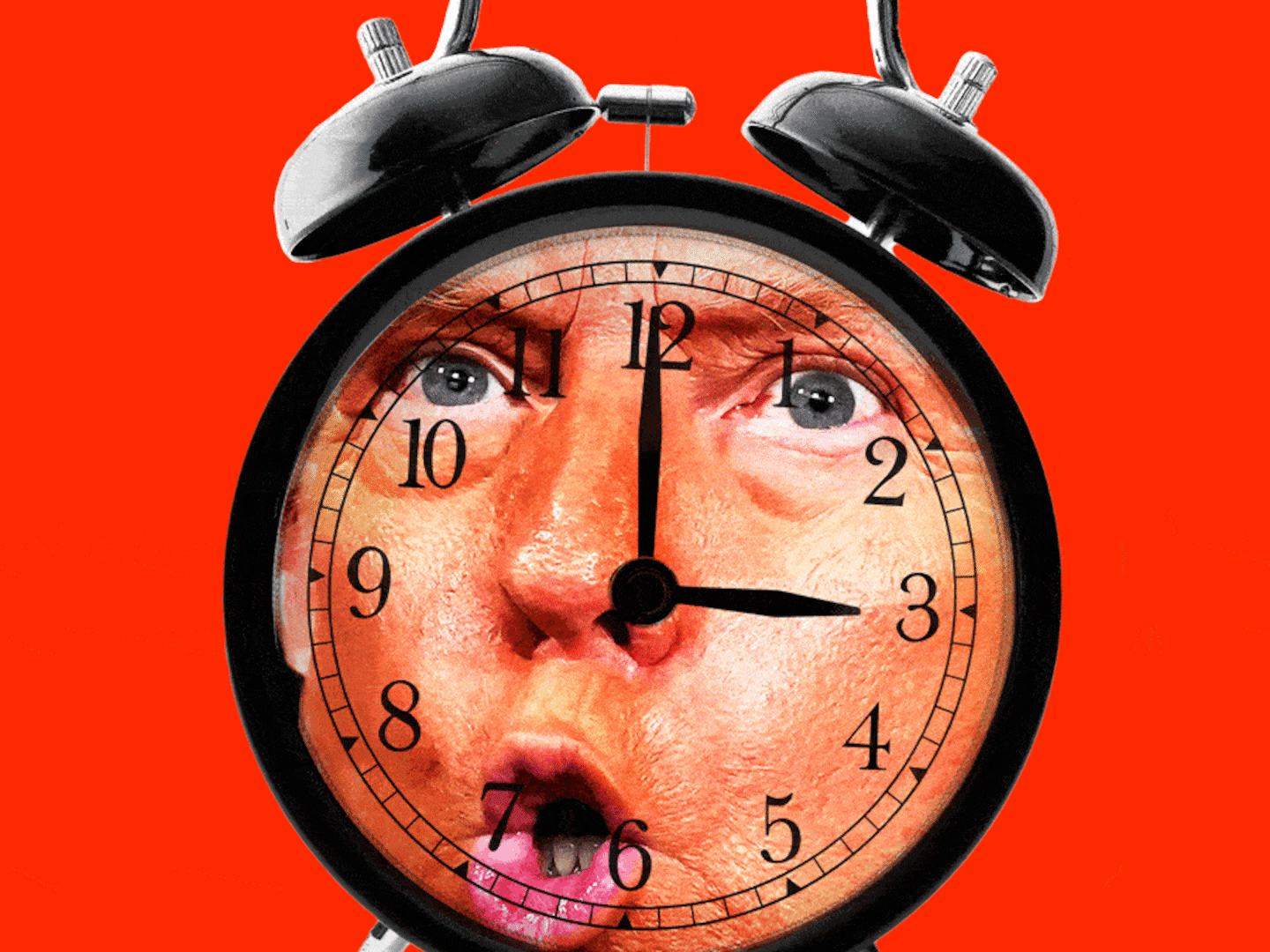More and more, liberals are attempting to cast all conservatives as enemies of democracy while simultaneously casting all of their political policies as pro-democracy. The consequences of this could be disastrous.
The most blatant example occurred during Joe Biden’s primetime “Soul of America” speech earlier this month—a speech advertised as addressing conspiracy theories, political violence, and attempts to overthrow democracy.
In this context, Biden talked about how “MAGA forces are determined to take this country backwards,” before hastening to add, “Backwards to an America where there is no right to choose…” In one fell swoop, Biden conflated “MAGA Republicans” who deny elections and participate in insurrections with Reagan Republicans who care about the right to life of unborn babies. There is no comparison.
But it’s not just social issues that get you written out of polite society. Fiscal conservatives are also suspect. In a tweet sent on Friday, Biden wrote that “Republicans have pushed an ultra-MAGA agenda to: Threaten Social Security and Medicare…Raise taxes on working families [and] Give big corporations and billionaires tax breaks.” Axios’s Josh Kraushaar called this “Defining down ‘ultra MAGA’ and noted that, “Under this standard, Liz Cheney would qualify.”
And Biden isn’t the only one guilty of this. This past week, New York magazine’s Jonathan Chait took to Twitter to remind us that during the Tea Party era, then-Rep. Ron DeSantis wrote a book that Chait sees as a Rosetta Stone for decoding conservatism’s illiberal tendencies. After reading the book, Chait surmises that: “The Constitution’s role, as DeSantis sees it, is to prevent popular majorities from enacting the economic policies they want.”
Conservatives have long worried that, “A democracy can only exist until the voters discover that they can vote themselves largesse from the public treasury”—a line sometimes apocryphally attributed to Alexis de Tocqueville. This is very similar to what DeSantis was saying. Indeed, most of the lines that trouble Chait are standard boilerplate conservative rhetoric.
And maybe that’s the point. The implication being that the whole conservative project—including Reagan, two Bushes, John McCain, Mitt Romney, et al.—was fruit from a poisonous tree.
The logical conclusion, if you subscribe to this worldview, is that conservatives inherently hate democracy and, therefore, have no place in polite society. We increasingly see this attitude manifested in electoral politics—the last place you want to write off a prospective convert or customer.
“Those who support [DeSantis] should stay with him and vote for him and I don’t want your vote,” Rep. Charlie Crist (who was once the Republican governor of Florida) said just after winning the state’s Democratic gubernatorial primary this year.
“If you have that hate in your heart,” Crist continued, “keep it there.” And Crist isn’t the only politician to express this sentiment.
Or consider New York Gov. Kathy Hochul, who said: “Trump and [GOP gubernatorial candidate Lee] Zeldin and [GOP congressional candidate Marcus] Molinaro—just jump on a bus and head down to Florida where you belong, OK? Get out of town because you don’t represent our values.”
Hochul later clarified that her comments were directed at these three “extreme” men, but another line—“You’re not New Yorkers, because we come from a long line of people who fought for women’s rights that happened here first”—was interpreted as a broader attack on people who don’t share her pro-abortion views.
Hey, what else are you supposed to say to a “semi-fascist” movement? No Republicans Need Apply.
This attitude is counterproductive on multiple levels. First, of course, it’s terrible (morally and politically) to dismiss approximately half the country.
Second, instead of rising to the occasion and giving America at least one responsible, normal, or decent party, Democrats are taking political advantage of what could be considered a perilous moment.
Rather than acknowledging that reasonable people can have honest disagreements about public policy questions such as abortion (which you should ostensibly do in a democracy), Democrats are attempting to baptize and sanctify their political preferences in the holy waters of American democracy, which is (to extend the religious metaphor) unseemly and sacrilegious.
Third, this practice will likely lead to more, not less, MAGA extremists (an outcome which ought not to shock members of a party that has spent tens of millions of dollars helping to boost MAGA candidates in Republican primaries).
People who feel threatened are more likely to retreat to their tribe for protection. By creating a scenario where even “normal” non-Trump Republicans feel victimized and shamed, liberals risk making the radicalization of conservatism a self-fulfilling prophecy.
I’m not sure they even see that as a problem.









